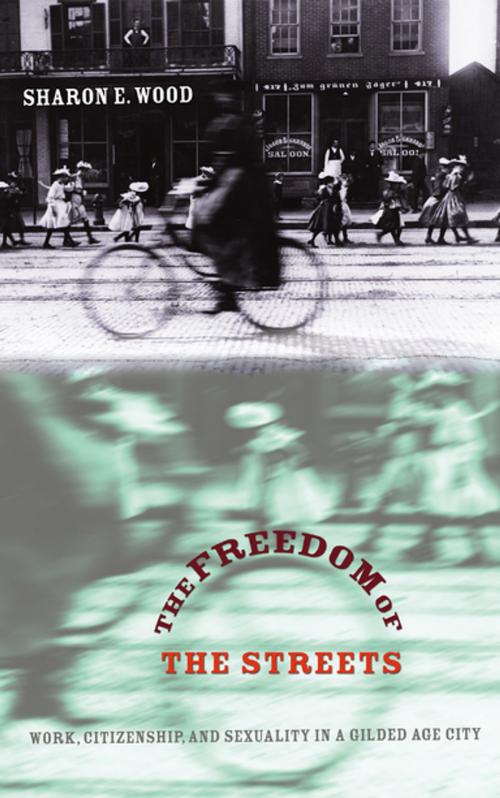The Freedom of the Streets
Work, Citizenship, and Sexuality in a Gilded Age City
Nonfiction, History, Americas, United States, 19th Century, Social & Cultural Studies, Social Science, Gender Studies, Women&| Author: | Sharon E. Wood | ISBN: | 9780807876534 |
| Publisher: | The University of North Carolina Press | Publication: | March 8, 2006 |
| Imprint: | The University of North Carolina Press | Language: | English |
| Author: | Sharon E. Wood |
| ISBN: | 9780807876534 |
| Publisher: | The University of North Carolina Press |
| Publication: | March 8, 2006 |
| Imprint: | The University of North Carolina Press |
| Language: | English |
Gilded Age cities offered extraordinary opportunities to women--but at a price. As clerks, factory hands, and professionals flocked downtown to earn a living, they alarmed social critics and city fathers, who warned that self-supporting women were just steps away from becoming prostitutes. With in-depth research possible only in a mid-sized city, Sharon E. Wood focuses on Davenport, Iowa, to explore the lives of working women and the prostitutes who shared their neighborhoods.
The single, self-supporting women who migrated to Davenport in the years following the Civil War saw paid labor as the foundation of citizenship. They took up the tools of public and political life to assert the respectability of paid employment and to confront the demon of prostitution. Wood offers cradle-to-grave portraits of individual girls and women--both prostitutes and "respectable" white workers--seeking to reshape their city and expand women's opportunities. As Wood demonstrates, however, their efforts to rewrite the sexual politics of the streets met powerful resistance at every turn from men defending their political rights and sexual power.
Gilded Age cities offered extraordinary opportunities to women--but at a price. As clerks, factory hands, and professionals flocked downtown to earn a living, they alarmed social critics and city fathers, who warned that self-supporting women were just steps away from becoming prostitutes. With in-depth research possible only in a mid-sized city, Sharon E. Wood focuses on Davenport, Iowa, to explore the lives of working women and the prostitutes who shared their neighborhoods.
The single, self-supporting women who migrated to Davenport in the years following the Civil War saw paid labor as the foundation of citizenship. They took up the tools of public and political life to assert the respectability of paid employment and to confront the demon of prostitution. Wood offers cradle-to-grave portraits of individual girls and women--both prostitutes and "respectable" white workers--seeking to reshape their city and expand women's opportunities. As Wood demonstrates, however, their efforts to rewrite the sexual politics of the streets met powerful resistance at every turn from men defending their political rights and sexual power.















